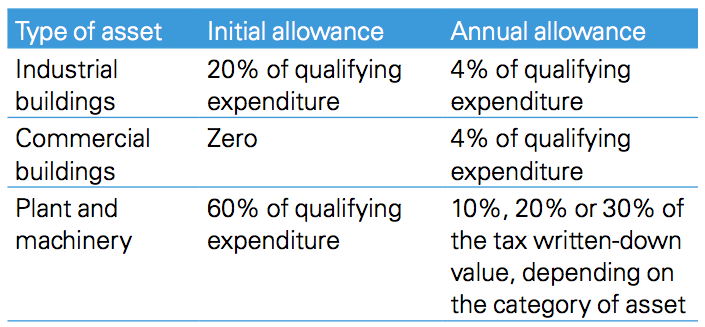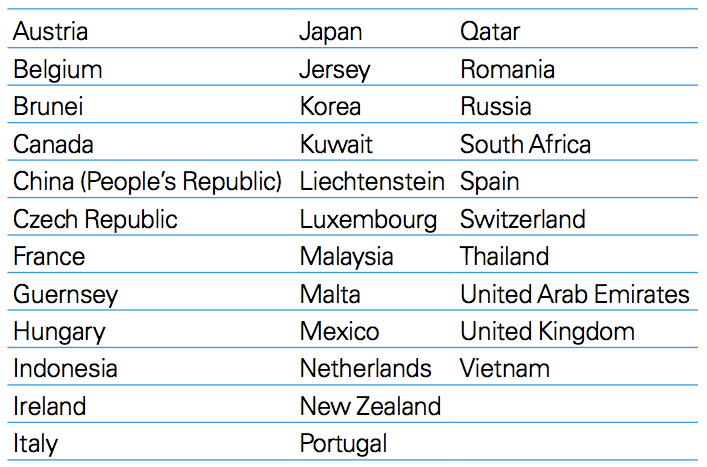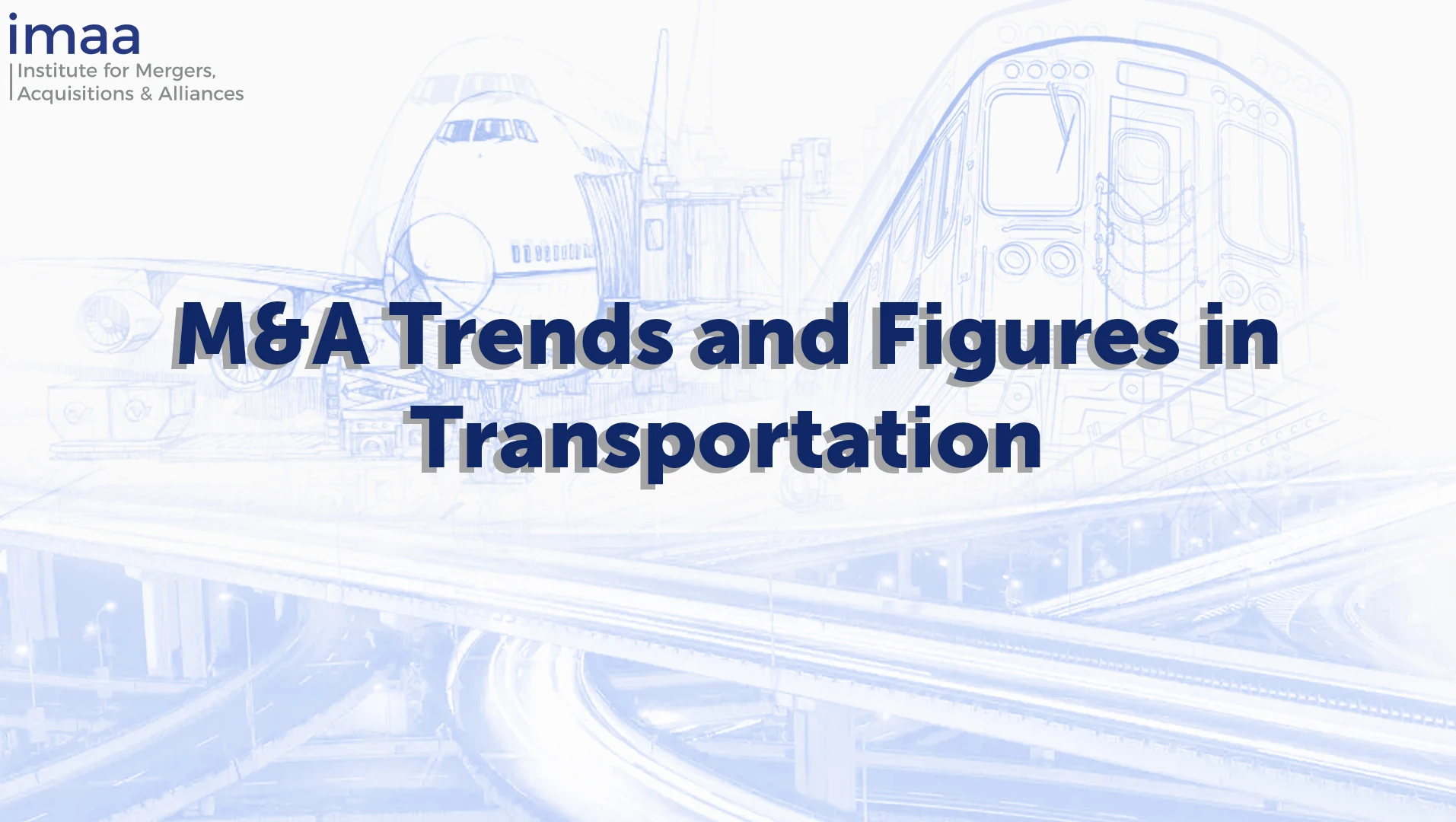
Publications Taxation Of Cross-Border Mergers And Acquisitions: Hong Kong 2016
- Publications
Taxation Of Cross-Border Mergers And Acquisitions: Hong Kong 2016
- Christopher Kummer

SHARE:
Introduction
Hong Kong is a former British Crown Colony whose sovereignty was returned to the People’s Republic of China (PRC) on 1 July 1997. The Hong Kong government has traditionally adopted a minimal intervention approach to the economy.
Consistent with this approach, Hong Kong has a relatively simple tax system, minimal competition law, a relatively unregulated business environment and practically no restrictions on foreign ownership. There are no exchange controls and no restrictions on repatriation of profits.
The Basic Law, which came into effect on 1 July 1997, ensures the continuation of Hong Kong’s capitalist economy and way of life for 50 years. The Basic Law is a constitutional document for the Hong Kong Special Administrative Region (HKSAR) that enshrines the important concepts of one country, two systems, a high degree of autonomy and Hong Kong people ruling Hong Kong. The laws previously in force in Hong Kong (common law, rules of equity, ordinances, subordinate legislation and customary law) were maintained, except for those that contravened the Basic Law and subject to any amendments made by the HKSAR legislature. Consistent with the Basic Law, Hong Kong continues to maintain its own tax system, which is separate from the PRC’s, the tax laws of which do not apply to the HKSAR.
Recent developments
The major tax changes in Hong Kong since the last edition of this report are as follows:
- Hong Kong has now concluded 34 tax treaties, including a double tax agreement with Russia in January 2016, which will take effect on 1 April 2017 in Hong Kong and 1 January 2017 in Russia (subject to completion of ratification procedures on both sides).
- An existing profits tax exemption for offshore funds was extended to cover certain private equity funds.
Asset purchase or share purchase
In Hong Kong, it is more common for an acquisition to take the form of a purchase of shares of a company as opposed to a purchase of its business and assets.
Persons (which include a corporation, partnership, trustee, whether incorporated or unincorporated, or body of persons) are only subject to profits tax on their profits arising in or derived from Hong Kong from a trade, profession or business carried on in Hong Kong, except for any profits realized from sales of capital assets, which are exempt from profits tax. Sellers frequently are able to dispose of investments in shares free of profits tax.
By contrast, sales of certain assets may trigger a recapture of capital allowances claimed and possibly higher transfer duties (depending on the assets involved). These factors are likely to make asset acquisitions less attractive for the seller. However, the benefits of asset purchases should not be ignored, in particular, the potential to obtain deductions for the financing costs incurred on funds borrowed to finance the acquisition of business assets.
Some of the tax considerations relevant to each type of acquisition structure are discussed later in this report. The advantages and disadvantages are summarized at the end of the report.
Purchase of assets
For tax purposes, it is generally advisable for the purchase agreement to specify a commercially justifiable allocation of the purchase price among the assets, because all or part of the purchase price payable by a buyer may be eligible for tax relief in the form of capital allowances or deductions (either outright or over time), depending on the types of assets involved.
Tax-depreciation allowances arising from capital expenditure incurred on the acquisition of plant and machinery are generally computed with reference to the amount actually paid by the purchaser to the seller. However, the Commissioner of Inland Revenue (CIR ) may apply discretion where an asset that qualifies for initial or annual allowances is sold and the buyer is a person over whom the seller has control or vice versa, or both the seller and the buyer are persons over whom some other person has control. In this case, if the CIR considers that the selling price is not representative of the asset’s true market value at the time of sale, the CIR is authorized to determine the true market value of the asset sold. The value so determined is used to compute the balancing allowance or balancing charge for the seller and the capital expenditure of the buyer on which initial and annual allowances may be claimed.
For commercial and industrial buildings and structures, the tax allowances are based on the ‘residue of expenditure’ immediately after the sale. The residue of expenditure is the amount of capital expenditure incurred in the construction of the building or structure, reduced by any initial, annual or balancing allowances that have already been granted or any notional amounts written off and increased by any balancing charges made when the building or structure was previously used as an industrial or commercial building or structure.
Goodwill
The portion of the purchase price representing the cost of acquiring goodwill is not deductible for profits tax purposes. Where certain conditions are met, the Inland Revenue Ordinance (IRO) provides for the following specific deductions for payments giving rise to intangible assets:
- sums expended for registering a trademark, design or patent used in the trade, profession or business that produces chargeable profits
- payments for and expenditure incurred on research and development (R&D); in particular, payments to an approved research institute for R&D that may be specific to the requirements of the trade, profession or business or t merely within that class of trade, profession or business; and expenditure on R&D, including capital expenditure, other than expenditure on the acquisition of land or buildings or alterations, additions or extensions to buildings
- expenditure incurred on the purchase of patent rights or rights to any knowhow for use in Hong Kong (except where purchased from an associate)
- write-off of expenditure incurred on the purchase of copyrights, registered designs or registered trademarks over 5 years.
Depreciation
The IRO grants initial and annual depreciation allowances on capital expenditure incurred in acquiring or constructing industrial buildings, commercial buildings and plant and machinery used in the production of assessable profits. The rates applicable for the 2015/16 year of assessment are as follows:

In addition, the IRO provides the following tax concessions:
- write-off of certain expenditure incurred on the refurbishment or renovation of a building or structure in equal installments over 5 years
- write-off of certain expenditure incurred on the construction of an environmental protection installation in equal installments over 5 years and a 100 percent write-off of environmental protection machinery
- subject to certain provisions, 100 percent write-off of computer software, computer systems and computer hardware that are not an integral part of any machinery or plant, and certain other qualifying machinery or plant used specifically and directly in the manufacturing process.
Balancing charges or allowances may be triggered on specified occasions related to the cessation of use by the claimant having the relevant interest in a building or structure (e.g. when the building or structure has been demolished, destroyed or ceases to be used by the claimant). For qualifying plant and machinery, the sales proceeds (limited to cost) are deducted from the reducing value of the relevant pool. A balancing charge arises when, at the end of the basis period for a year of assessment, the reducing value of the pool is negative. Any excess of the sales proceeds above the original cost of the plant and machinery is not subject to profits tax. Such excess should be regarded as a profit arising from the sale of a capital asset.
Tax attributes
Tax losses are not transferred on an asset acquisition. The benefit of any tax losses incurred by the seller company remains with the seller (subject to an increase or reduction by the amount of any balancing charges or allowances on the sale of any depreciable assets).
Hong Kong does not have a franking or imputation regime.
Value added tax
There is currently no goods and services tax (GST) or valued added tax (VAT) in Hong Kong.
Transfer taxes
Stamp duty is imposed on certain instruments dealing with the sale or transfer of immovable property situated in Hong Kong. ‘Immovable property’ is defined as land, any estate, right, interest or easement in or over any land, and things attached to land (e.g. buildings) or permanently fastened to anything attached to land.
The current stamp duty rates on the sale or transfer of immovable property in Hong Kong are progressive. As of 23 February 2013, unless specifically exempt or otherwise provided, ad valorem stamp duty is chargeable at higher rates on the sale or transfer, ranging from 1.5 percent on consideration of up to 2 million Hong Kong dollars (HKD) to up to 8.5 percent on consideration of more than HKD21.7 million. A lease of immovable property in Hong Kong is chargeable to ad valorem stamp duty on a progressive scale ranging from 0.25 percent of average annual rent, where the term of the lease is uncertain, to 1 percent of average annual rent where the lease term exceeds 3 years.
A new special stamp duty (SSD) is effective for residential properties acquired on or after 20 November 2010 and resold within 24 months. SSD applies in addition to the ad valorem rates of stamp duty already imposed. SSD is imposed on the full value of sales proceeds at penal rates of 5, 10 or 15 percent, depending on when the property is bought and sold.
As of 27 October 2012, the rates of SSD were increased for residential properties acquired on or after 27 October 2012 and range from 10 to 20 percent, depending on the holding period, which has been extended to 36 months.
A buyer’s stamp duty (BSD) on residential properties has effect from 27 October 2012. Any residential property acquired by any person (including an incorporated company), except that of a Hong Kong permanent resident, is subject to BSD. BSD is charged at a flat rate of 15 percent on all residential properties, on top of the existing stamp duty and SSD, if applicable.
The Stamp Duty Ordinance (SDO) provides that a sale or transfer of immovable property from one associated corporate body to another is exempt from stamp duty. Two companies are associated where:
- one is the beneficial owner of not less than 90 percent of the issued share capital of the other, or
- a third company owns not less than 90 percent of the issued share capital of each company.
In addition to the 90 percent association test, a number of other conditions need to be satisfied to qualify for stamp duty exemption.There is a claw back rule in cases where the 90 percent association test ceases to be satisfied within 2 years of the date of the transfer.
Purchase of shares
Tax indemnities and warranties
It is not currently possible to obtain a clearance from the Inland Revenue Department (IRD) giving assurance that a potential target company has no arrears of tax or advising whether the company is involved in a tax dispute. As a result, it is usual to include tax indemnities or warranties in the sale and purchase agreement. The extent of the tax indemnities or warranties is subject to negotiation between the seller and the purchaser. It is customary for prospective purchasers to undertake a tax due diligence review to ascertain the tax position of the target company and to identify potential tax exposures.
Tax losses
Generally, tax losses incurred by a Hong Kong taxpayer may be carried forward indefinitely for set-off against the assessable profits earned in subsequent years of assessment. Losses may not be carried back.
There is no group relief in Hong Kong. Each company is treated as a separate person for tax purposes. Any unused tax losses incurred by the seller company cannot be transferred to the purchasing company on the sale of the business or the assets of the seller company. A sale of shares in the Hong Kong company usually does not affect the availability of the tax losses to be carried forward by that company, unless the change in the company’s shareholders is effected for the sole or dominant purpose of using the Hong Kong company’s tax losses.
Crystallization of tax charges
Changes in the shareholding of a Hong Kong company do not trigger any tax charges. The impact of changes in shareholding on tax losses is discussed in the immediately preceding paragraph.
Pre-sale dividend
In certain circumstances, a pre-sale dividend may be considered to reduce the value of the company for Hong Kong stamp duty purposes.
Transfer taxes
Ad valorem stamp duty is levied on non-exempt transfers of Hong Kong stock. ‘Hong Kong stock’ is defined to include shares in Hong Kong-incorporated companies as well as shares in overseas-incorporated Hong Kong-listed companies whose transfer of shares has to be registered in Hong Kong. No stamp duty is payable on allotments of shares, and capital duty was abolished as of 2013.
The current prevailing stamp duty rate is an aggregate amount equal to 0.2 percent (0.1 percent payable each on the buy note and the sell note) on the higher of the actual consideration stated in the relevant instrument or the value of the stock as at the transfer date, plus a fixed duty of HKD5 for stamping the instrument of transfer. For unlisted Hong Kong stock, the value is generally determined by reference to the latest accounts of the company whose shares are being transferred. The net assets and liabilities of the company per the latest accounts are used as the starting point, with possible adjustments to reflect the assets’ market value as at the date of transfer.
A specific stamp duty anti-avoidance provision may apply where shares in a target company change hands and an arrangement is made between the parties so that the purchaser is required to refinance, guarantee or otherwise assume liability for the target company’s debt. For example, where A sells shares in the target company to B and, as an integral part of the transaction, A assigns to B the shareholder’s loan due by the target, the money paid by B as consideration for the assignment of the loan is deemed to be part of the consideration for the sale and purchase of the shares.
As with immovable property, the SDO provides that a transfer of shares from one associated corporate body to another is exempt from stamp duty. As noted earlier in the report, two companies are associated where one is the beneficial owner of not less than 90 percent of the issued share capital of the other, or a third company owns not less than 90 percent of the issued share capital of each company. In addition to the 90 percent association test, a number of other conditions need to be satisfied to qualify for this exemption. A claw back rule applies where the 90 percent association test ceases to be satisfied within 2 years from the date of the transfer.
Tax clearances
A person may apply to the CIR for an advance ruling on how any provision of the IRO applies to them or the arrangement specified in the application. An application fee is payable and limitations apply.
It is not currently possible to obtain a clearance from the IRD giving assurance that a potential target company has no arrears of tax or advising as to whether the company is involved in a tax dispute.
Choice of acquisition vehicle
As Hong Kong operates a territorial system of taxation, the profits tax rules apply equally to Hong Kong incorporated companies carrying on a trade or business in Hong Kong and overseas incorporated companies carrying on a trade or business in Hong Kong through a branch. The main types of investment vehicles used to carry on business in Hong Kong are a Hong Kong incorporated company, a branch of a foreign company, a partnership and an unincorporated joint venture. The local registration and administration requirements vary, depending on the form of legal presence used.
The tax rates that apply to a person’s assessable profits to determine their profits tax liability for the 2015/16 year of assessment are as follows:
- for corporations: 16.5 percent
- for unincorporated businesses: 15 percent.
Local holding company
One advantage of establishing a local holding company is that dividends received from a company subject to profits tax are specifically exempt from profits tax under the IRO. However, there is no specific IRO provision exempting dividends received from companies that are managed and controlled outside Hong Kong and carry on no business in Hong Kong. In practice, the IRD treats such dividends as exempt on the basis that they are not derived from Hong Kong. So, subject to controlled foreign company rules (CFC) in other jurisdictions, dividends can be accumulated in a local holding company without further tax leakage.
Another advantage of setting up a local holding company is that any profit derived from the subsequent exit by sale or disposal of the local holding company should generally be treated as exempt from profits tax because Hong Kong does not tax profits derived from the sale of capital assets. Similarly, the disposal of any subsidiaries held by a local holding company is not taxed in Hong Kong unless the acquisition of these subsidiaries is regarded as speculative or as part of a trade carried out in Hong Kong such that the resulting profit would not fall within the scope of the capital profits exemption.
Hong Kong has concluded comprehensive tax treaties with:

Negotiations to conclude tax treaties with a number of Hong Kong’s trading and investment partners are underway. Hong Kong also has non-comprehensive treaties with various countries relating to income derived from the international operation of ships and/or aircraft. Details and dates of tax treaty negotiations are published on the IRD’s website.
For a summary of reduced withholding tax (WHT) rates under Hong Kong’s tax treaties, see the table at the end of this report.
Foreign parent company
From a Hong Kong tax perspective, a foreign parent company may choose to make direct inbound investments into Hong Kong since dividends paid by a Hong Kong company to a non-resident shareholder are not subject to WHT in Hong Kong.
Non-resident intermediate holding company
From a Hong Kong tax perspective, it may not be necessary to set up a foreign intermediate holding company for inbound investments into Hong Kong since dividends paid by a Hong Kong company to a non-resident shareholder are not subject to WHT in Hong Kong.
Local branch
A foreign purchaser may decide to acquire business assets through a Hong Kong branch. For example, it is common for companies incorporated in the British Virgin Islands to be used to carry on business in Hong Kong. Alternatively, it may be possible for non-Hong Kong-sourced income earned through the Hong Kong branch to benefit from protection under a tax treaty concluded between the jurisdiction in which the head office is located and the jurisdiction where the relevant income is sourced.
Hong Kong does not impose additional taxes on branch profits remitted to an overseas head office. Generally, Hong Kong’s profits tax rules apply to foreign persons carrying on business in Hong Kong through a branch in the same way that they apply to Hong Kong-incorporated entities. There are special rules for ascertaining the assessable profits of a branch and those of certain types of businesses, including ship owners carrying on business in Hong Kong and non-resident aircraft owners.
Joint venture
Partners in a general partnership are jointly and severally liable for the debts and obligations incurred by them or on their behalf. A partnership is treated as a chargeable person for profits tax and property tax purposes, so tax is chargeable at the partnership level. Although a partnership is assessed as a separate legal entity for profits tax purposes, the amount of its liability to profits tax is determined by aggregating the tax liabilities of each partner with respect to their share of the assessable profits or losses of the partnership. Therefore, the amount of tax payable on the partnership profits is affected by the tax profiles of the individual partners, that is, whether the partners have losses and whether the partners are corporate entities (such that the profits tax rate of 16.5 percent applies for the 2015/16 year of assessment) or individuals (such that the standard salaries tax rate of 15 percent applies for the 2015/16 year of assessment).
By contrast, a joint venturer is not responsible in law for acts of its co-venturers. A joint venture is not a legal person and is not deemed to be a chargeable person for the purposes of the IRO. In practice, a profits tax return is often issued by the IRD under the name of the joint venture.
Provided that the IRD accepts that the joint venture should not be regarded as a partnership, it is usually sufficient for the profits tax return to be completed and filed on a nil basis.The relevant income and expenses of the joint venture is reported in the joint venturers’ own profits tax returns.
Choice of acquisition funding
Debt
There are no capital taxes on the issue of debt. There are no transaction taxes or other similar charges on the payment or receipt of interest. Some forms of debt may fall within the definition of Hong Kong stock for stamp duty purposes.
Deductibility of interest
Generally, for borrowers other than financial institutions, loan interest and related expenditure (e.g. legal fees, procurement fees, stamp duties) are deductible only to the extent that the money is borrowed for the purpose of producing assessable profits of the borrower and one of the following tests is satisfied:
- The money is borrowed from a person other than a financial institution or an overseas financial institution, and the interest payable is chargeable to profits tax for the recipient.
- The money is borrowed from a financial institution or an overseas financial institution, and the repayment of principal or interest is not secured or guaranteed in whole or in part, and, whether directly or indirectly, by any instrument executed against a deposit made by any person where interest on that deposit or loan is not chargeable to profits tax.
- The money is borrowed to finance:
- capital expenditure incurred in the provision of machinery or plant that qualifies for depreciation allowances for profits tax purposes
- the purchase of trading stock used by the borrower in the production of profits chargeable to profits tax, provided the lender is not an associate of the borrower.
4. The funds are raised by way of listed debentures or certain other marketable instruments.
In respect of the first and third tests, the IRO contains provisions to counter sub-participation and back-to-back loan arrangements by which, the IRD asserts, Hong Kong taxpayers were previously able to circumvent the conditions in and thwart the legislative intent of these provisions:
- Tax symmetry test: This precludes a borrower from deducting interest on a loan secured by either a deposit or a loan made by the Hong Kong borrower (or an associate) where the interest on the loan or deposit is not subject to profits tax. Where the loan is partly secured by tax-free deposits or loans, the interest deduction is apportioned on the most reasonable and appropriate basis, given the circumstances of the case.
- Interest flow-back test: Under this test, interest is not deductible where an arrangement between the borrower and the lender stipulates that the interest is ultimately paid back to the borrower or a person connected with the borrower. A ‘connected person’ is defined as an associated corporation or a person who controls the borrower, is controlled by the borrower, or is under the same control as the borrower. However, a partial deduction for the interest is permitted when the interest only partially flows back to the borrower and only in proportion to the number of days during the year in which the flow-back arrangement is effective. The test does not apply where the interest is payable to an ‘excepted person’, which is defined to include a person who is subject to profits tax in Hong Kong on the interest, a financial institution (domestic or overseas), a retirement fund or collective investment fund in which the borrower or an associate has an interest, and a government-owned corporation.
In addition to these specific conditions for interest and related borrowing costs, funding costs and related expenses must be properly charged to the profit and loss account in the basis period for the year of assessment and not otherwise be of a capital nature in order to qualify for deduction.
Following the Court of Final Appeal’s decision in Zeta Estates Ltd v Commissioner of Inland Revenue (2007) 2 HKlRD 102, it is now possible for acquirers to achieve debt pushdown by borrowing to replace equity funding with debt funding (e.g. by paying a dividend), where the equity is employed as capital or working capital in a business carried on for the purpose of earning assessable profits.
Withholding tax on debt and methods to reduce or eliminate it
Hong Kong does not currently impose WHT on interest paid by persons carrying on a trade, profession or business in Hong Kong.
Checklist for debt funding
- There are no limits on the level of debt funding because Hong Kong has no thin capitalization rules. However, the restrictive circumstances in which tax relief is granted for interest and related financing costs may influence the amount and source of any debt funding introduced to make an acquisition.
- Interest and financing costs incurred on money borrowed to finance the acquisition of shares are not deductible for profits tax purposes.
- Hong Kong has a relatively low profits tax rate, so it is possible that a tax deduction may be available at higher rates in other jurisdictions.
- Hong Kong does not currently impose WHT on interest paid by persons carrying on a trade, profession or business in Hong Kong.
Equity
Capital duty on the increase in the authorized share capital of a company formed and registered under the Hong Kong Companies Ordinance was abolished as of 1 June 2012.
Hybrids
Hong Kong outbound investors generally do not use hybrid financing because it is relatively easy for non-financial lenders to ensure that any interest income is offshore-sourced.
Hong Kong companies need to satisfy the conditions explained in this report’s earlier section on deductibility of interest to be eligible to claim a deduction for amounts payable on hybrid instruments.
There are currently no specific provisions under the IRO that distinguish between equity and debt interests for profits tax purposes. However, the IRD has issued a practice note to address the changes in the accounting presentation of debt and equity instruments as required under Hong Kong Accounting Standards (HKAS) 32 and 39. These accounting standards, issued by the Hong Kong Institute of Certified Public Accountants in May 2004, are virtually identical to International Accounting Standards (IAS) 32 and 39, issued by the International Accounting Standards Board. These accounting standards deal with the presentation, recognition and measurement of financial instruments.
The IRD takes the view that the legal form, rather than the accounting treatment, should determine the nature of the financial instrument for profits tax purposes. Therefore, if the characterization of the financial instrument as liability or equity for accounting purposes is not consistent with the legal nature of the instrument, it is necessary to take into account other factors, such as:
- the character of the return (e.g. whether fixed rate or profit participation)
- the nature of the holder’s interest in the issuer company (e.g. voting rights and rights on winding up)
- the existence of a debtor and creditor relationship
- the characterization of the instrument by general law.
For example, coupons on mandatory redeemable preference shares are treated as dividends for profits tax purposes and are not as deemed interest, even where the coupons are re-characterized as interest in the profit and loss account for accounting purposes.
Compound financial instruments must be split into their liability and equity components for purposes of HKAS 32. The IRD adheres to the legal form of the compound instrument and treats it for profits tax purposes as a whole. For example, a convertible bond that is required to be split into its equity and debt components in accordance with HKAS 32 is treated as debt for profits tax purposes. The corresponding interest payments are allowed as deductions provided the general and specific conditions for interest deductibility set out in the IRO are met (see this report’s section on debt).
To provide greater certainty, it is possible to obtain an advance ruling from the IRD on the interpretation of statutory provisions in certain circumstances. A ruling may be granted on how any provision of the IRO applies to the applicant or to the arrangement described in the application. A ruling is given only for a seriously contemplated transaction and not for hypothetical transactions or those where the profits tax is due and payable. An advance ruling is not granted once the due date for filing of the relevant year’s profits tax return has passed.
Discounted securities
There are currently no specific provisions under the IRO that deal with the tax treatment of discounted securities for profits tax purposes. The IRD takes the view that the legal form, rather than the accounting treatment, should determine the nature of the financial instrument for profits tax purposes (see this report’s section on hybrids). Where the characterization of the discount security for accounting purposes is not consistent with the legal nature of the instrument, it is necessary to take into account other factors, such as the factors noted in the preceding section for characterizing hybrid financial instruments
Where the legal characterization of the discount on the security is interest, then such amount is deductible, provided the IRO’s general and specific conditions for interest deductibility are met (see deductibility of interest). Where the legal characterization of the discount is not interest, then its deductibility is determined in accordance with Hong Kong’s general deductibility rules.
Other considerations
Concerns of the seller
Considerations of the seller can include:
- possible recapture of capital allowances
- stamp duty implications of a transaction
- scope of tax warranties and indemnities in the sale and purchase agreement.
Company law
The Hong Kong Companies Ordinance prescribes how Hong Kong companies may be formed, operated and terminated.
The new Companies Ordinance, which was passed by the Hong Kong Legislative Council in July 2012 and took effect on 3 March 2014, aims to modernize the law, ensure better regulation, enhance corporate governance and facilitate business.
Under the new Companies Ordinance, five types of companies can be formed (compared with eight under the previous ordinance). Unlimited companies without share capital are abolished; companies limited by guarantee, whether private or non-private, are amalgamated and become companies by guarantee; and non-private companies become ‘public companies’. The concept of par value of shares is abolished, and a general court-free procedure based on a solvency test is introduced as an alternative to reduction of capital.
Further, the new Companies Ordinance makes available a court-free regime for two types of amalgamations of wholly owned companies within the same group:
- vertical amalgamation of a holding company and its wholly owned subsidiaries
- horizontal amalgamation of wholly owned subsidiaries of a company.
In this regard, the new Companies Ordinance makes no mention of the tax implications of the court-free amalgamation. Pending the decision to amend provisions in the IRO to specifically address the tax treatment of court-free amalgamations, on 30 December 2015, the IRD published guidance on its website clarifying its approach when making assessments on the profits tax consequences of a court-free amalgamation, for example, in relation to the availability of unutilized tax losses of the amalgamating companies.
All Hong Kong companies, other than certain dormant companies, must compile accounts annually and have them audited by a registered Hong Kong auditor. However, Hong Kong private companies do not have an obligation to file financial statements with the Hong Kong Companies registry or otherwise make them publicly available.
The Companies Ordinance only permits the payment of dividends from distributable profits. A company’s profits available for distribution are its accumulated realized profits (not previously used by distribution or capitalization), less its accumulated realized losses (not previously written-off in a reduction or reorganization of capital). The assessment of available profit and declaration of dividends is determined separately for each legal entity, not on the consolidated position. This entity-by-entity assessment requires planning to avoid dividend traps — the inability to stream profits to the ultimate shareholder — because of insufficient profits within a chain of companies. Appropriate pre-acquisition structuring should help to minimize this risk.
A Hong Kong company may undergo a court-free share capital reduction if approved by a special resolution supported by a solvency statement based on a uniform solvency test.
Group relief/consolidation
There is no concept of grouping for tax purposes in Hong Kong. All companies are assessed separately, irrespective of whether they are group, associated or related companies.
Transfer pricing
Hong Kong’s transfer pricing (TP) provisions in the domestic law are brief and address transactions between a resident and a closely connected non-resident. Due to practical difficulties, in the past, these provisions were not commonly applied other than in blatant avoidance cases. Rather, where the IRD encounters non-arm’s length pricing, it usually sought to address the situation by adjusting deduction claims or applying the general anti-avoidance provision.
However, the tax and transfer pricing landscape in Hong Kong is maturing rapidly, showing signs of keeping up with the advancing TP recommendations issued by the Organisation for Economic Co-operation and Development (OECD) with the issuance of Departmental Interpretation and Practice Note No. 46 (DIPN-46) by the IRD. The recent change in the TP environment makes it clear that the IRD is adopting and enforcing TP principles in tax audits.
According to Hong Kong transfer pricing guidelines (i.e. DIPN 46), taxpayers are encouraged to prepare transfer pricing documentation to support the reasonableness of their transfer pricing policy. Although the preparation of a transfer pricing report is not mandatory in Hong Kong, the IRD recently launched a large number of tax audits against multinationals of different industries, and, in various cases, challenged transfer pricing methodologies. Multinationals have come under considerable scrutiny, particularly regarding management service fees and head office charges, including investigations on whether service charges can be supported. The level of details and sophistication of information requested in relation to allocation recharges from the head office and service companies is elevating TP to a new level in Hong Kong. This includes scrutiny regarding the benefits test, duplication and support for mark-ups.
With respect to the OECD’s Base Erosion and Profit Shifting (BEPS) Action Plan, the IRD has no immediate plans to change the current laws or practices regarding BEPS. In media releases, the IRD has publicly indicated that they will closely monitor international developments in this respect, including OECD discussions, with a view to assessing the need for any corresponding measures. As Hong Kong’s TP rules generally follow the principles in the OECD guidelines, it would be beneficial for multinationals to take preemptive actions to review and update their existing transfer policies and adopt the OECD’s documentation approach (i.e. country-by-country reporting, master file and local file).
Dual residency
Based on the tax treaties that Hong Kong has concluded to date, a company is generally a resident of Hong Kong if it is incorporated in Hong Kong or normally managed or controlled in Hong Kong. Cases of dual residency are resolved either by reference to the company’s place of effective management or by mutual agreement.
Foreign investments of a local target company
As explained in this report’s section on local holding companies, Hong Kong companies are not subject to profits tax on dividends received from overseas companies. Similarly, any profit derived from selling shares in the overseas company is not subject to profits tax where the shares in the overseas company are capital assets of the Hong Kong seller, or where the profit is derived from outside Hong Kong. It is relatively easy for non-financial institutions to make loans of money in a way that ensures any interest income is offshore-sourced.
Hong Kong has no CFC rules.
Comparison of asset and share purchases
Advantages of asset purchases
- Purchase price (or a part of it) may be eligible for outright deduction or capital allowances, depending on the type of asset involved.
- May be possible to step-up the tax basis on depreciable assets.
- Provided certain formalities are complied with, no previous liabilities of the company are inherited.
- No acquisition of a tax liability on retained earnings.
- Possible to acquire only part of a business.
- Greater flexibility in funding options, which can be important because interest incurred to fund the acquisition of shares (which may generate tax-exempt dividends and/or capital gains/losses) is non-deductible, whereas interest incurred to fund the acquisition of business assets is generally deductible (subject to conditions).
- Profitable operations might be acquired by loss companies in the acquirer’s group, thereby effectively gaining the ability to accelerate the use of the losses.
Disadvantages of asset purchases
- Possible recapture of capital allowances claimed.
- Possible need to renegotiate supply, employment and technology agreements.
- Higher capital outlay is usually involved (unless debts of the business are also assumed).
- May be unattractive to the seller, thereby increasing the price.
- Possibly higher transfer duties (depending on the nature of the assets involved).
- Accounting profits may be affected by the creation of purchased goodwill.
- Benefit of any tax losses incurred by the target company remains with the seller (subject to increase or reduction by the amount of any balancing allowances or charges on the sale of any depreciable assets).
- Lower capital outlay (purchase net assets only).
- Likely to be more attractive to the seller, thus reducing the price.
- May benefit from tax losses of the target company (indirectly).
- May gain the benefit of existing supply or technology contracts.
- Lower transfer duties payable on net assets acquired.
- Preserves historical tax attributes, such as tax basis and losses.
Advantages of share purchases
- Lower capital outlay (purchase net assets only).
- Likely to be more attractive to the seller, thus reducing the price.
- May benefit from tax losses of the target company (indirectly).
- May gain the benefit of existing supply or technology contracts.
- Lower transfer duties payable on net assets acquired.
- Preserves historical tax attributes, such as tax basis and losses.
Disadvantages of share purchases
- May acquire unrealized tax liability for depreciation recapture on difference between market and tax book value of assets.
- Liable for any claims or previous liabilities of the entity.
- No depreciation allowances for the purchase price.
- Less flexibility in funding options (i.e. harder to push down acquisition debt to obtain interest deduction without refinancing qualifying, pre-existing intercompany loans).
TAGS:


Stay up to date with M&A news!
Subscribe to our newsletter


